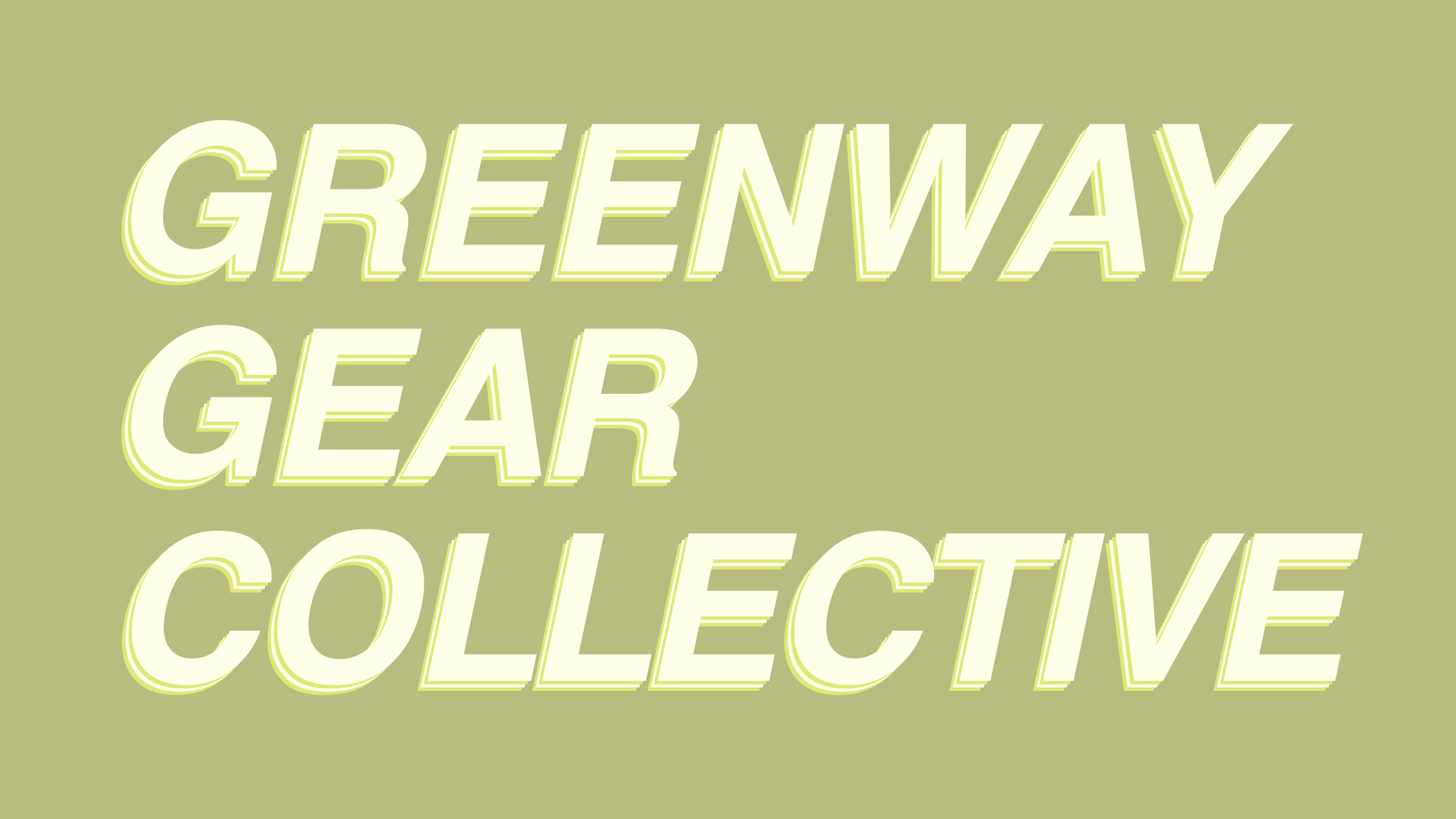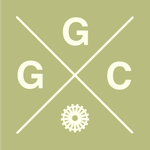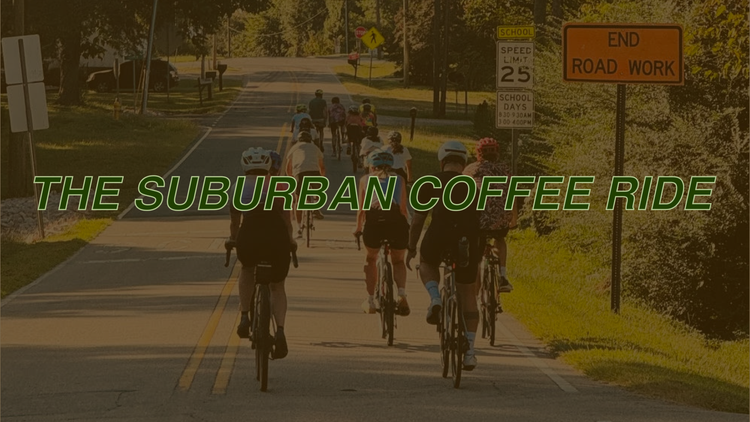Art, Bikes, and Community with Justice Dunne
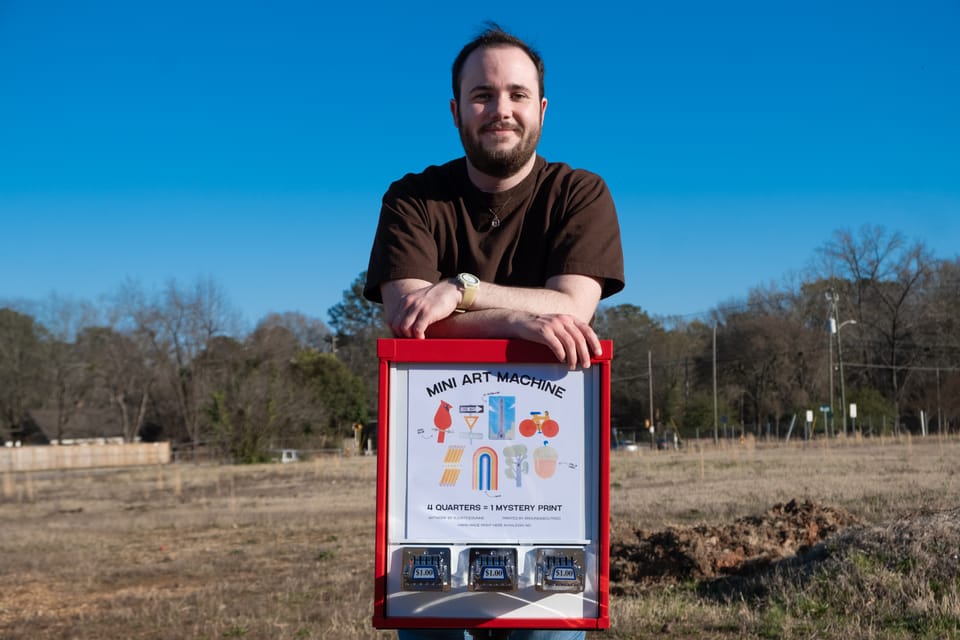
CZ: Here we are with Justice Dunne. We're gonna start with the heavy-hitting question: if you were a rabbit, what hat would you wear?
JD: First thing that came to mind was a top hat, like a magician's rabbit. I think that'd be a pretty dapper-looking rabbit.
CZ: Ears through the hat or ears down?
JD: Ears down. I think it would look better — and probably be way more comfortable.
CZ: Super chill vibes. Agreed. All right, thanks for hopping on. Let’s start from the top: who are you, and what's your story?
JD: I’m a local Raleigh artist. I’ve been here since fifth grade, with a quick year and a half in Durham after graduating from NC State's College of Design. I work full-time for a tech company doing graphic design — mainly for social media at first, but now also marketing and event design. On the side, I've always freelanced, mostly illustration work.
About two years ago, I bought a house in East Raleigh, and wanted to get more involved in the community. I started volunteering with Oaks and Spokes — helped with the bike garden and back-to-school events — and through that, I met Jared, who runs Oaks and Spokes. He commissioned me to create posters, including for Fall Bike Month and the upcoming May Bike Month.
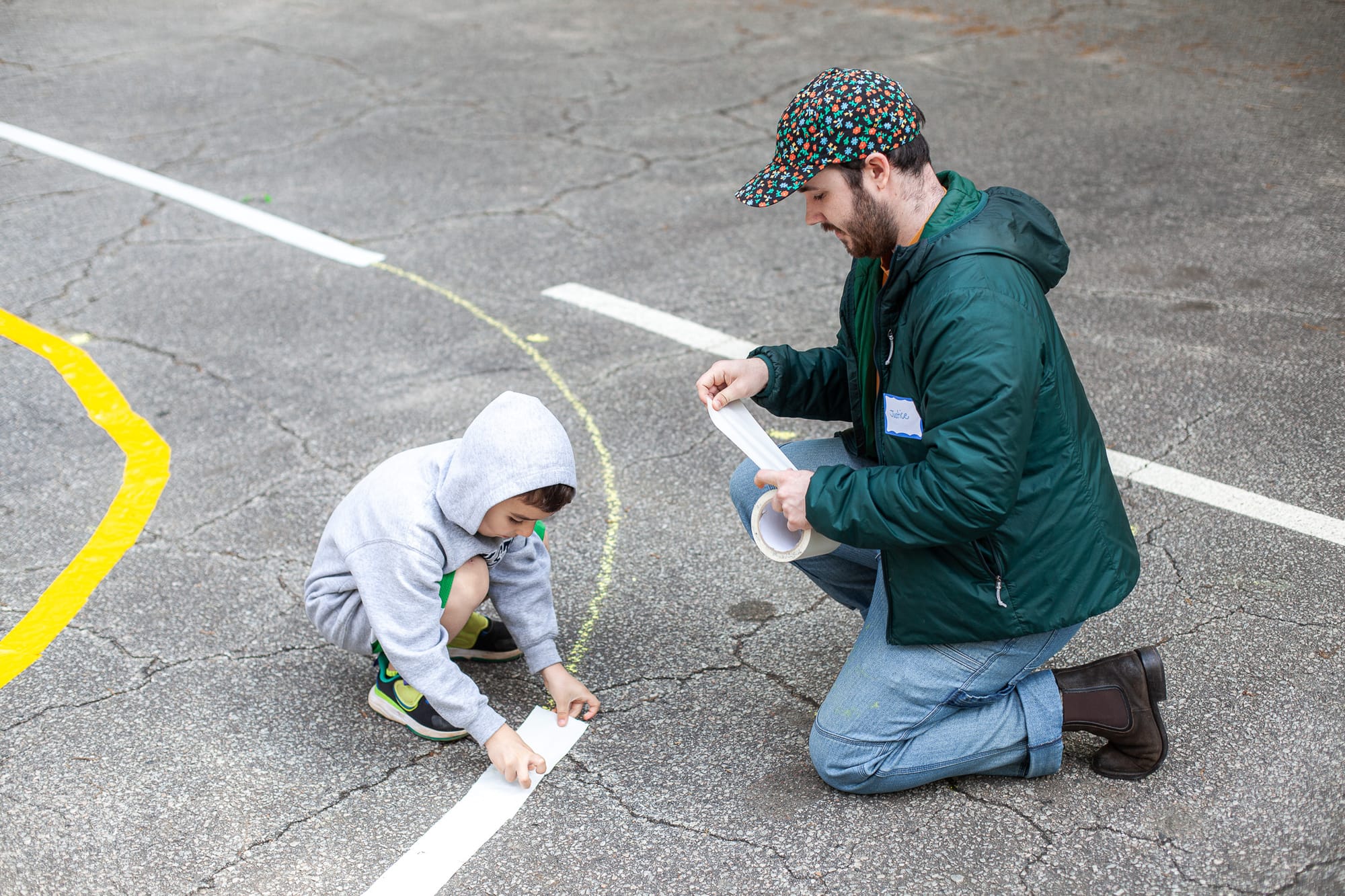
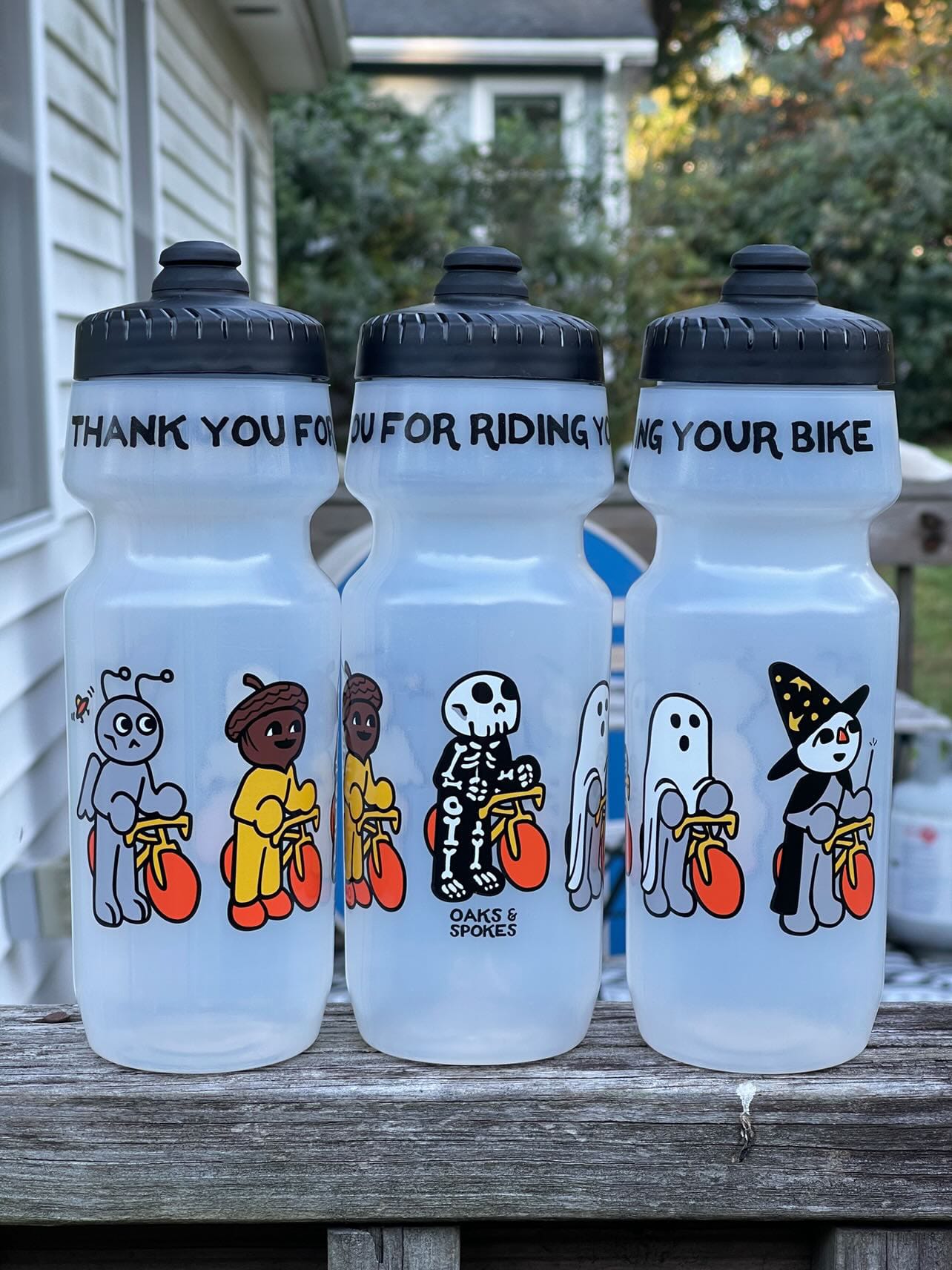
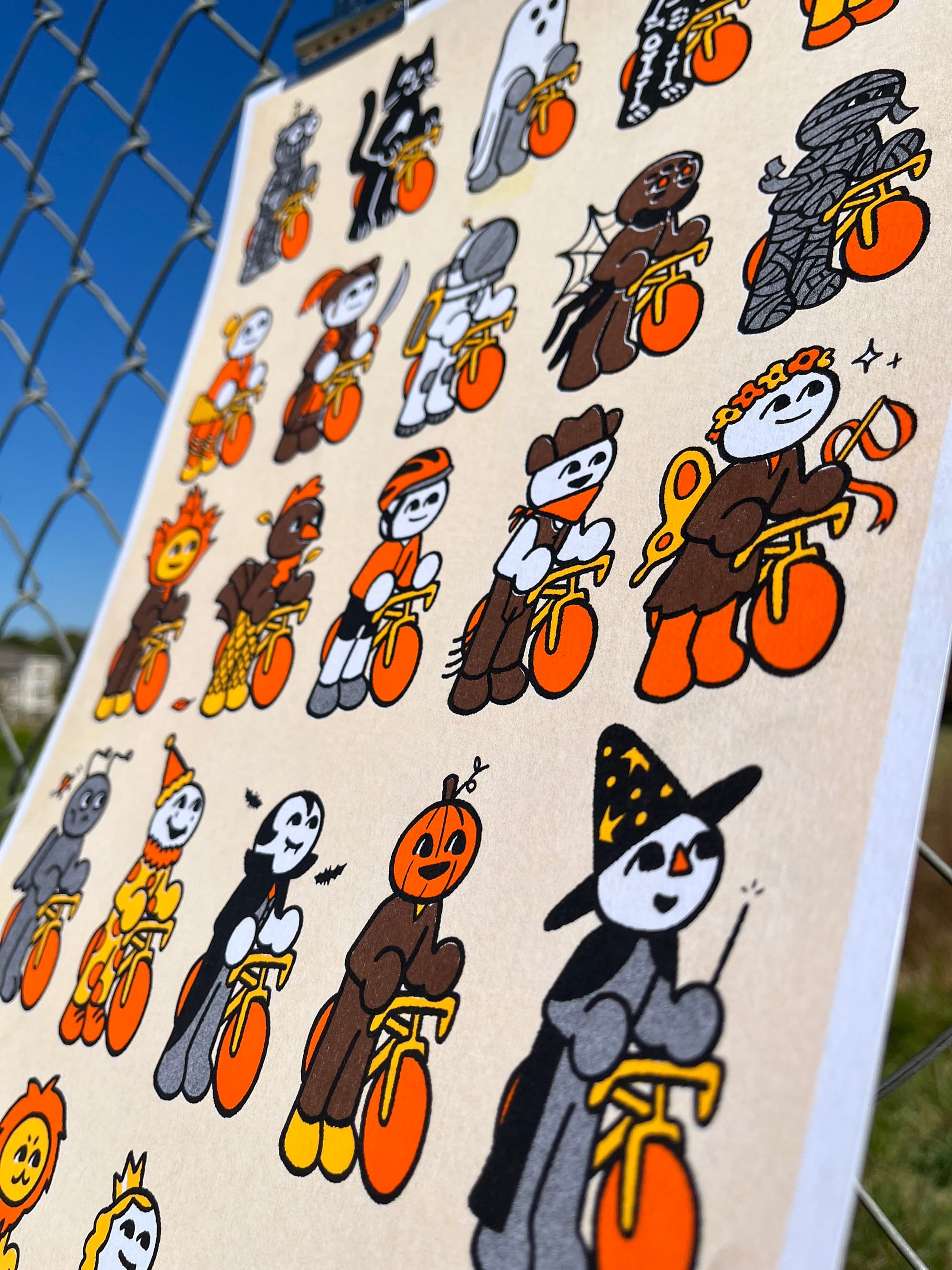
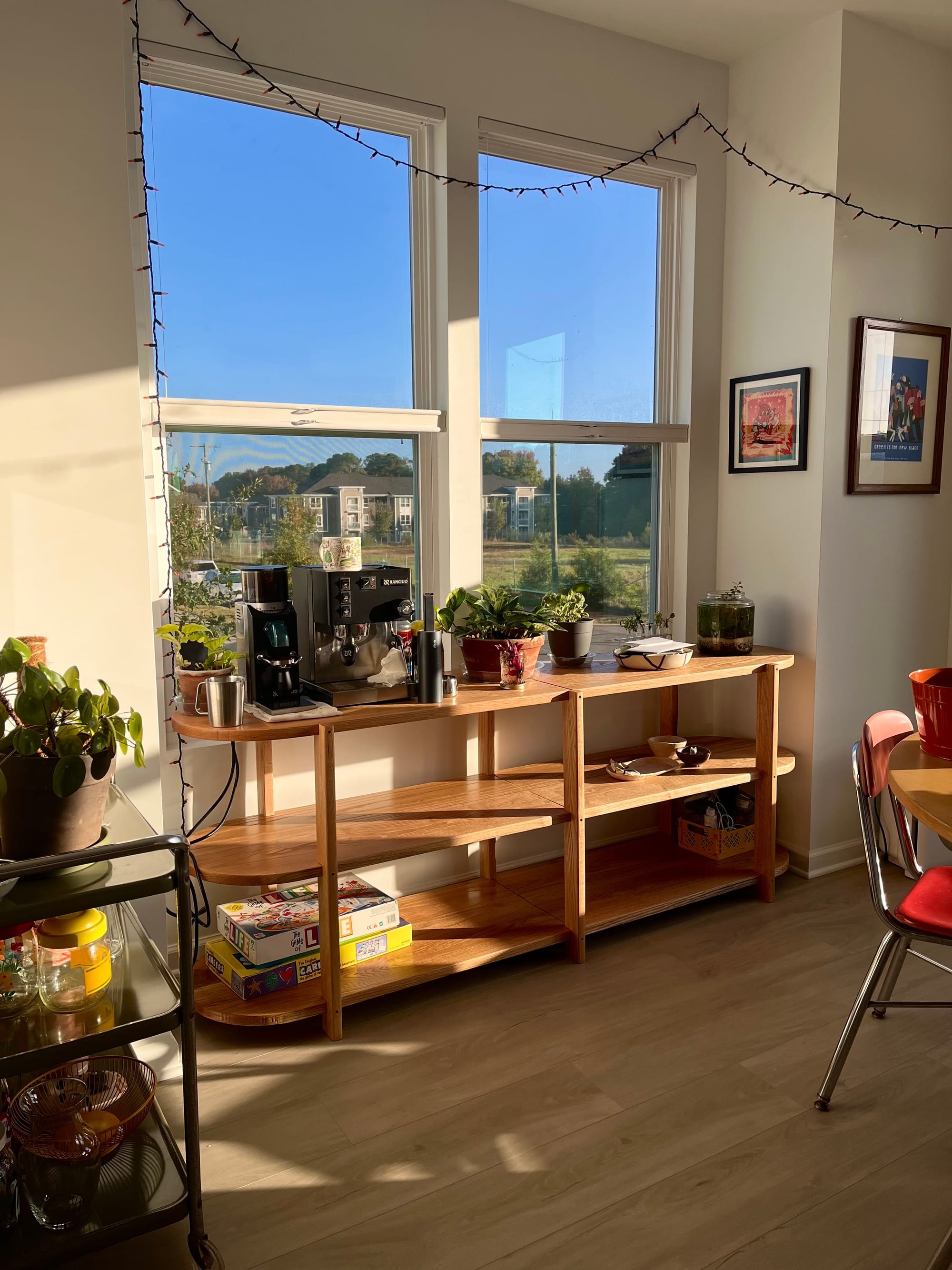
JD: I’ve also been selling personal art at markets around Raleigh and the Triangle. Through one of those markets, I met someone getting rid of a Risograph machine, which I’d always wanted. It's like a digital screen printer — super fun textures. I’ve been experimenting with that, and it sparked the idea for my print vending machine. I saw something similar in New York and thought, “How can I bring this to Raleigh?” So I bought a vending machine, printed and packaged my designs, and launched it. Now I’m ready to take it to local businesses and help support both the shops and myself as an artist.
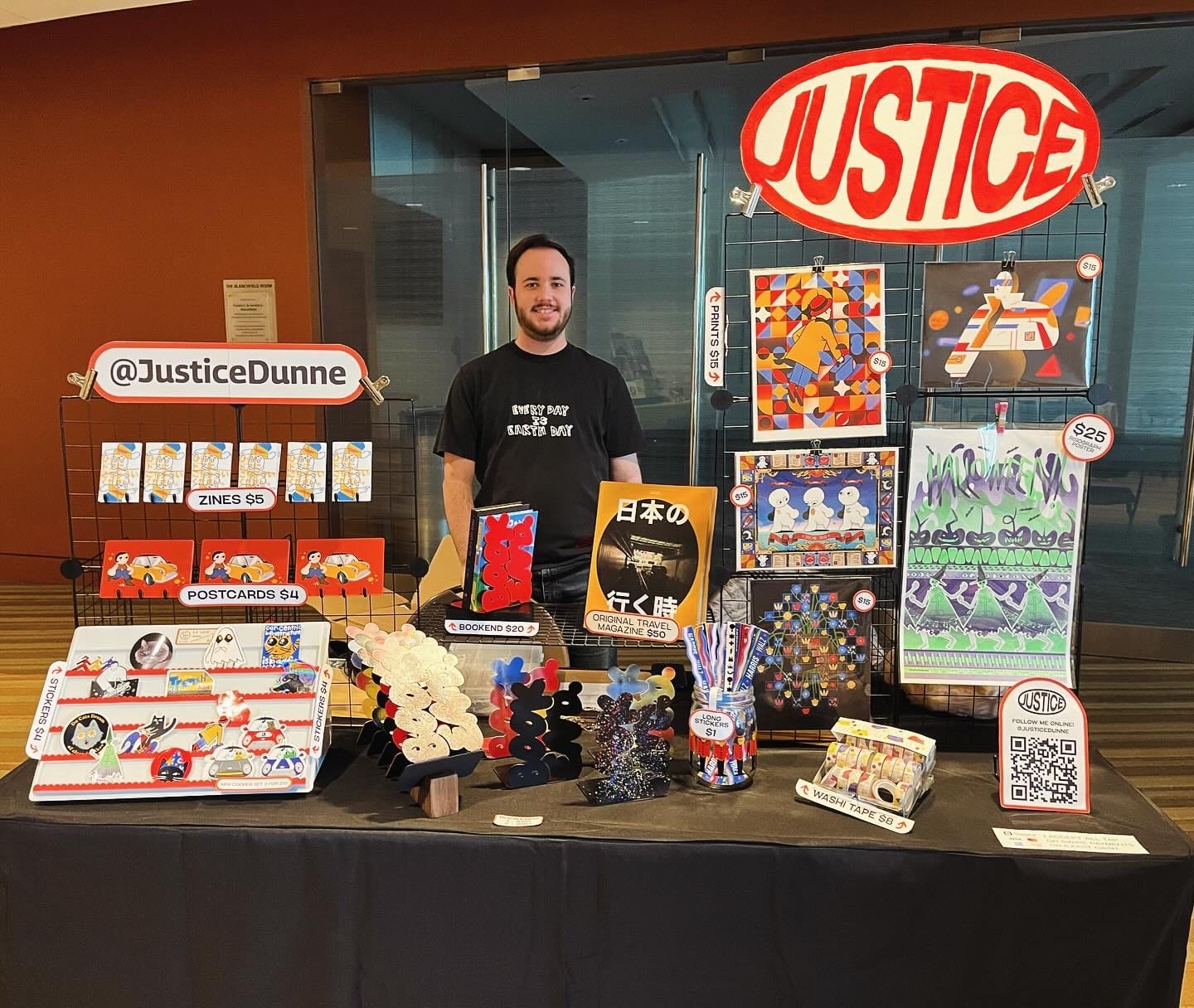
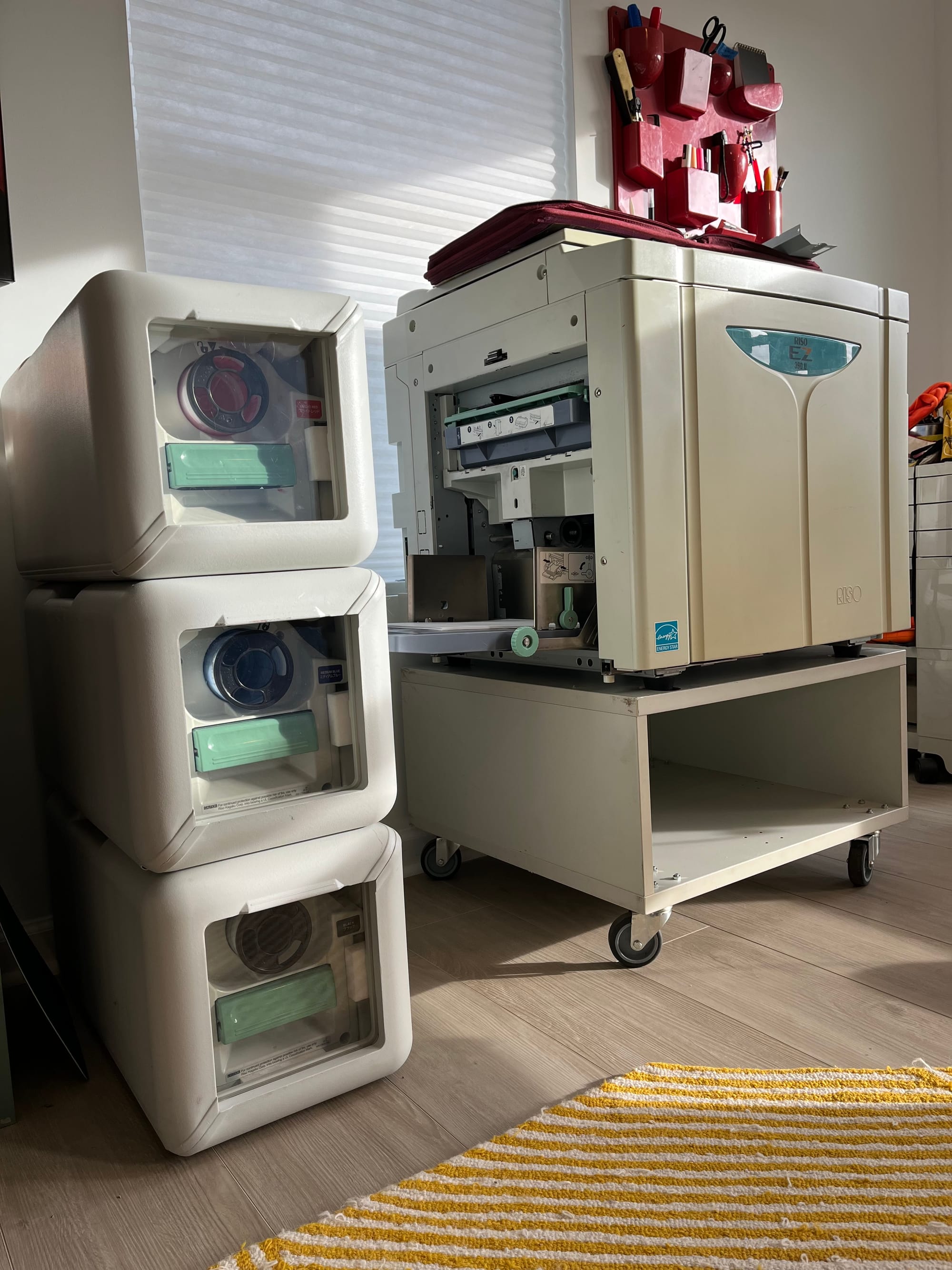
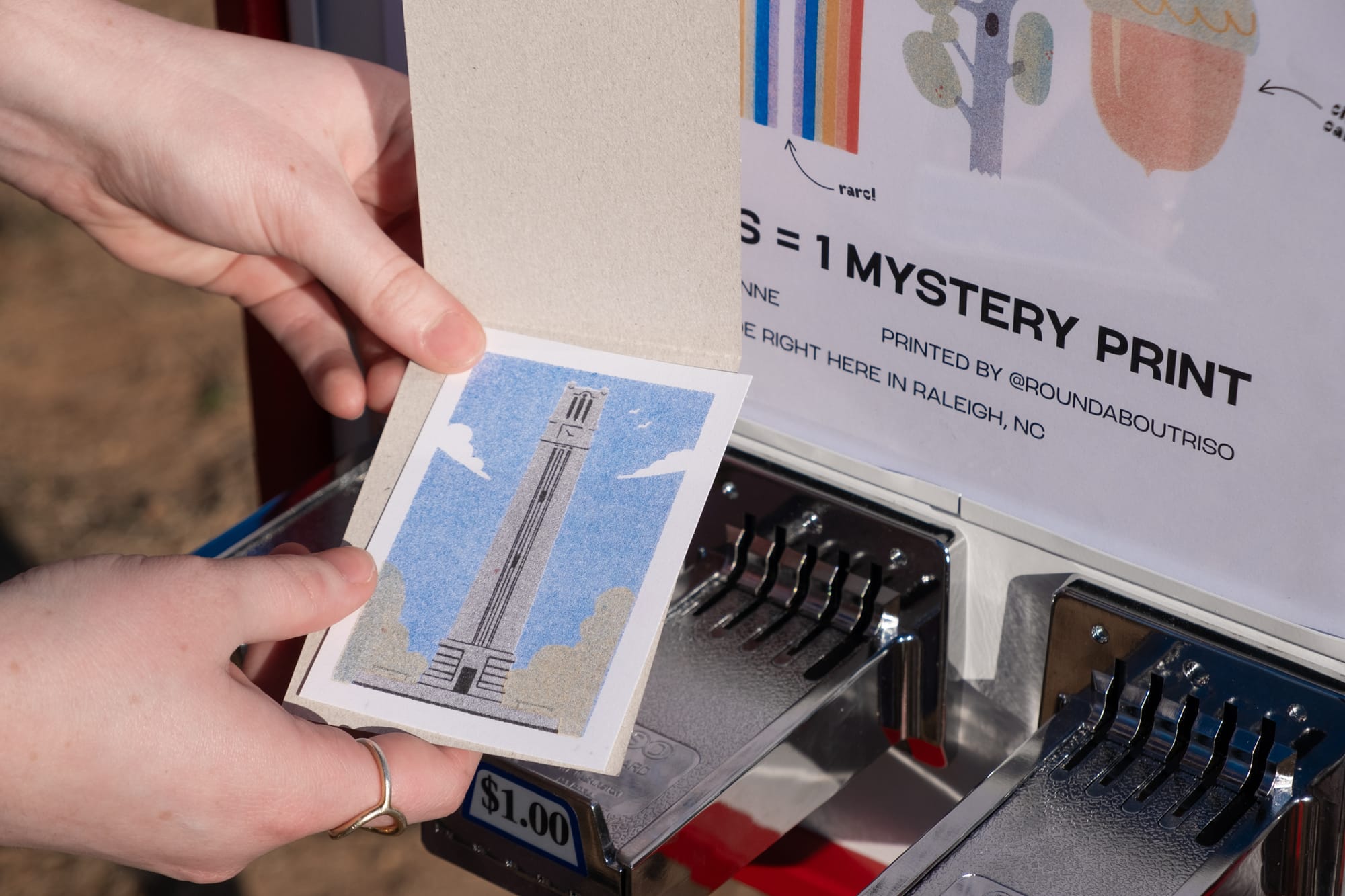
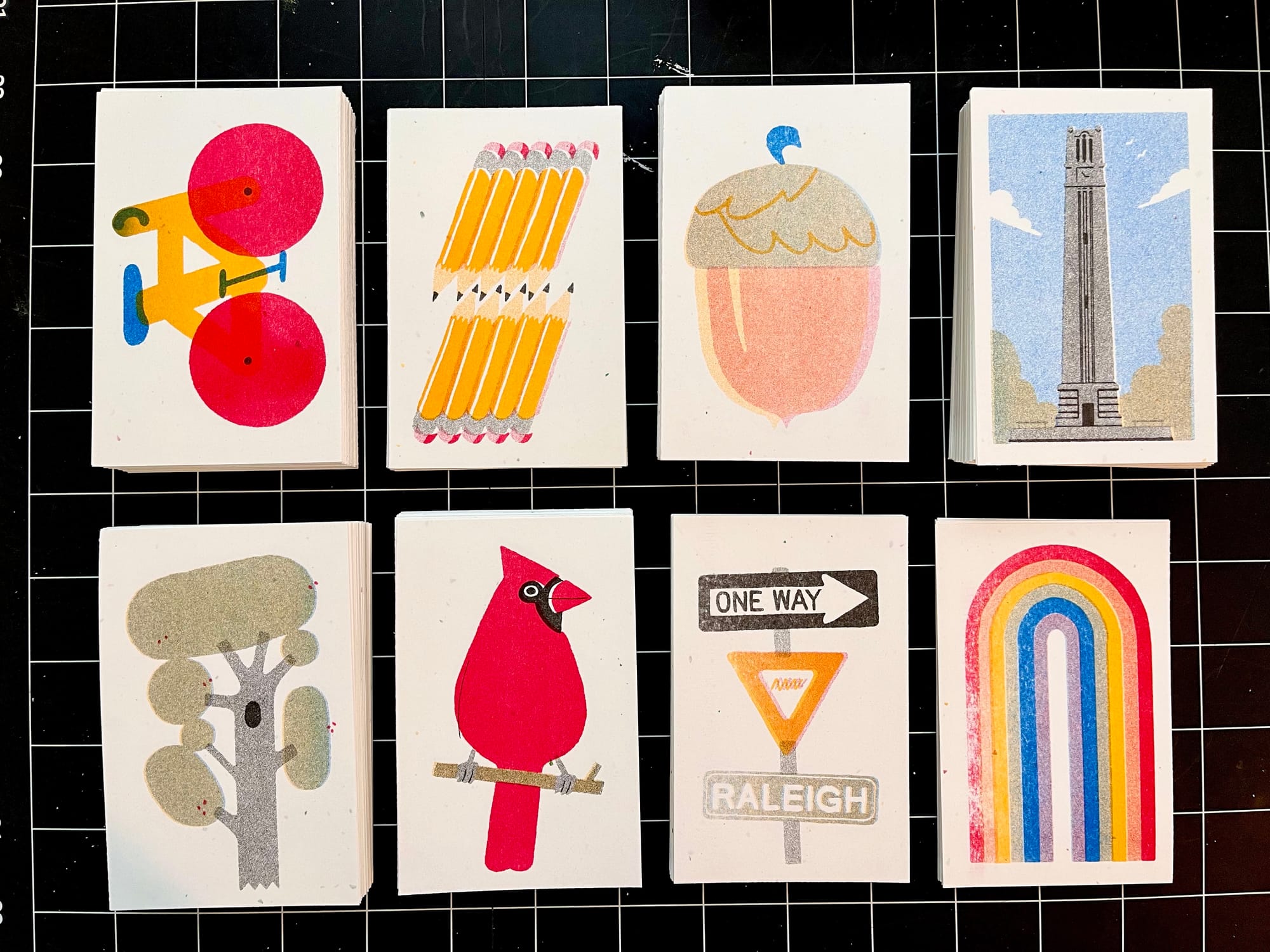
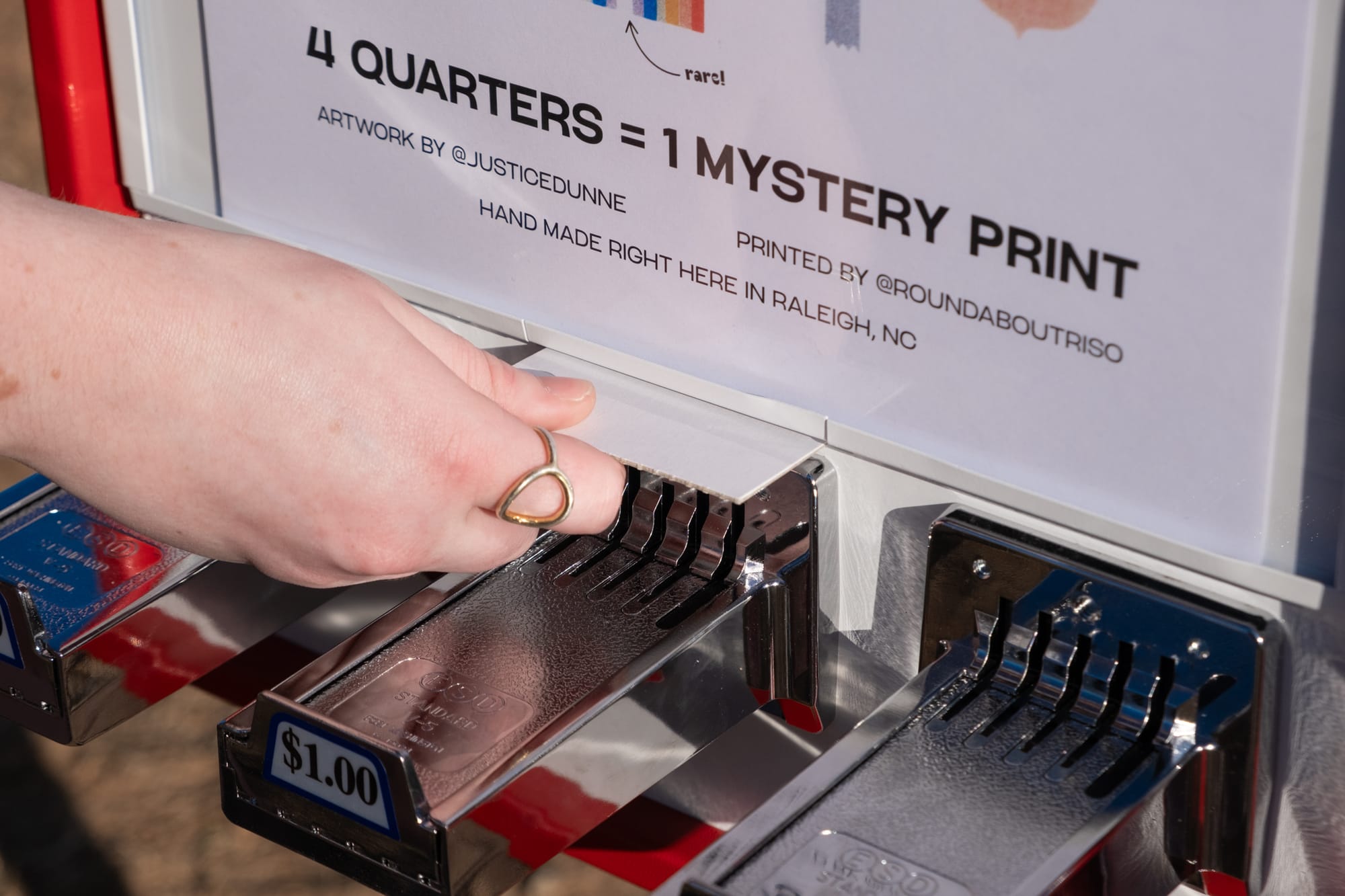
CZ: Very cool. What’s your preferred medium?
JD: Mostly digital — Photoshop or Procreate on the iPad. That’s important for the Risograph too, since it needs layered color separations.
CZ: So it must be pretty awesome seeing your digital work turn into physical prints right there.
JD: It’s amazing. I love product design, and being able to immediately print something I've only seen on a screen is so satisfying. Instant gratification.
CZ: Besides volunteering for Oaks and Spokes, what's your relationship with bikes?
JD: Biking’s been part of my life forever. I biked to school in fifth grade. I’ve had the same cheap single-speed bike for over ten years now. I used to do alleycat races with my dad downtown — that's how I first heard about Oaks and Spokes. When I moved back to Raleigh in 2020, I sold my car in 2022 and went fully bike-only for a while. I recently upgraded to an electric bike, which has been a game-changer. Now I get excited about riding every day.
CZ: Still rocking the no-car life?
JD: Yep. No car. Just my Kona ebike — brown frame, orange milk crate on the back, covered in stickers I've collected over the years.
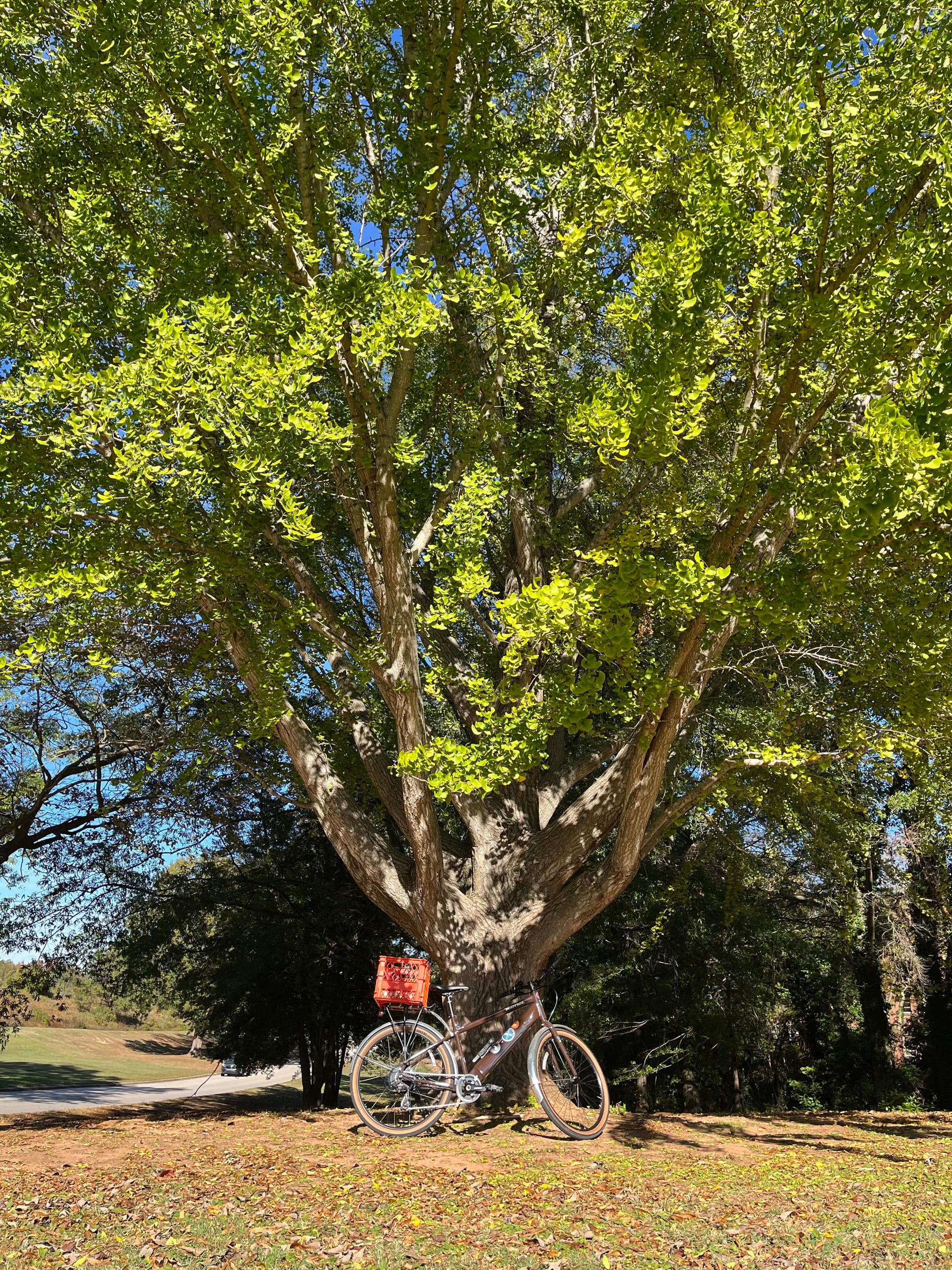
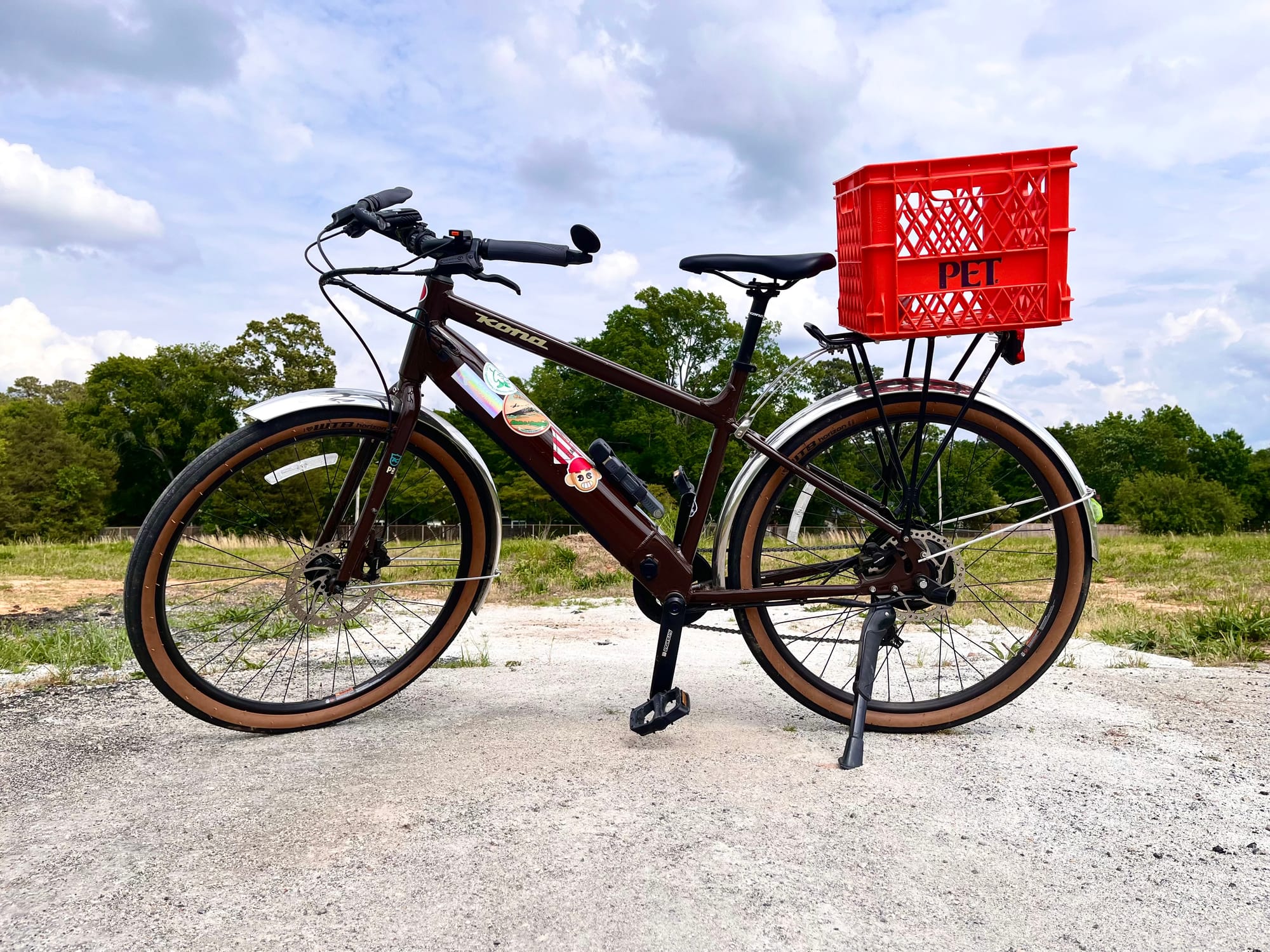
CZ: Love it. We’ll definitely grab some photos for the letter. What years were you doing those alleycats?
JD: Probably from 2012 to 2015. It tapered off during college.
CZ: You’ve seen downtown Raleigh change a lot. How’s the bike scene evolved?
JD: It’s way better now. I remember when Hillsborough Street didn’t even have a bike lane. Now there’s a lot more infrastructure. I feel safer biking in the city — but maybe that's partly just knowing the streets better. There's also more community now, like Critical Mass rides coming back.
CZ: Are you coming tonight?
JD: I think so — weather permitting.
CZ: Besides the vending machine, what other big projects are you stoked about this year?
JD: I’m vending at my first convention — Animazement, coming up in May. Usually it’s heavy on fan art, but they accepted me with my original art. I’ve also been working on pottery, making porcelain lamps, and I’m trying to design some wooden toys. I do woodworking too — mostly bigger furniture pieces like benches and credenzas.
CZ: Respect. I’m realizing there’s a big difference between "I can build a thing" and true craftsmanship.
JD: Oh, absolutely.
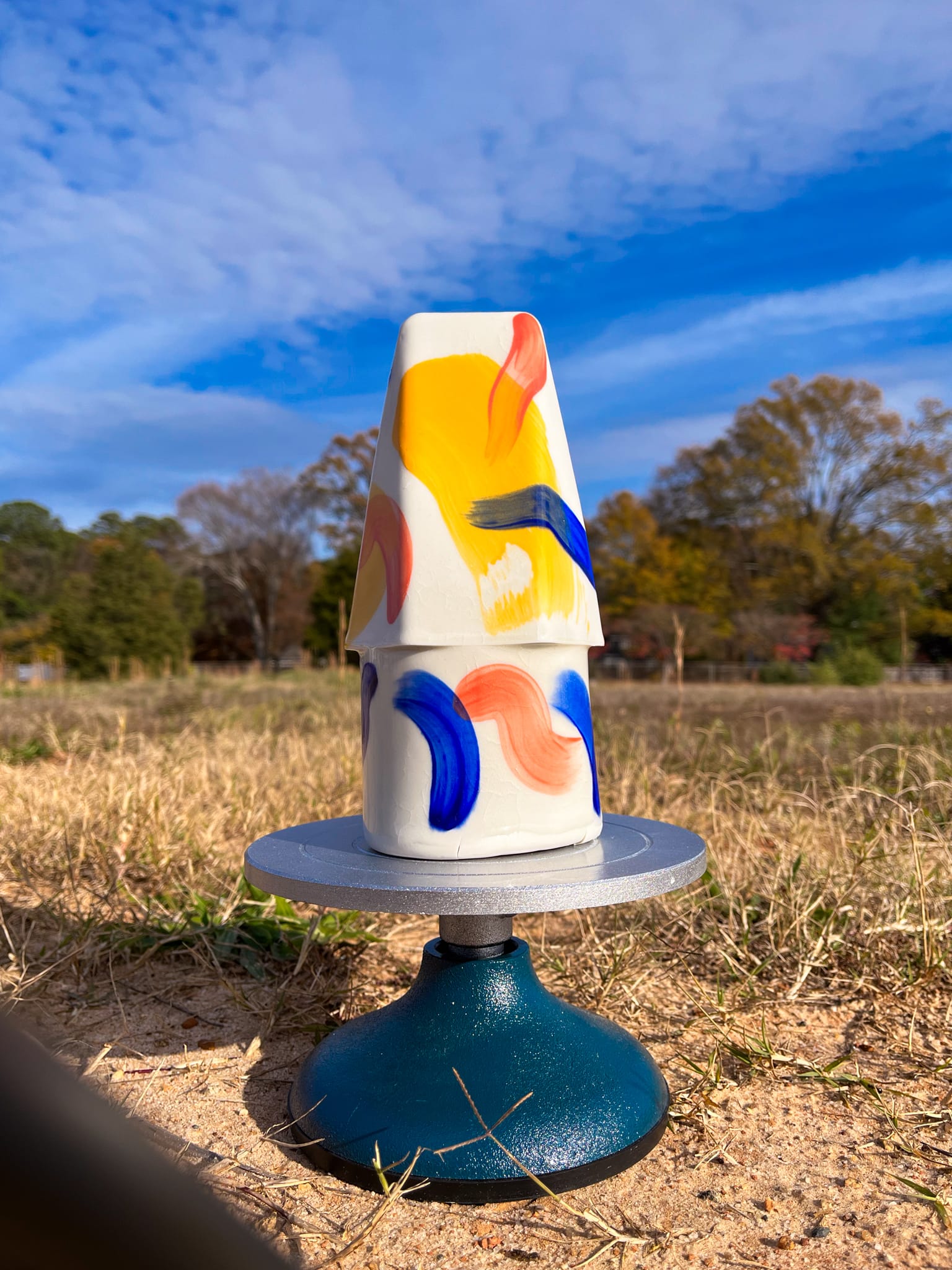
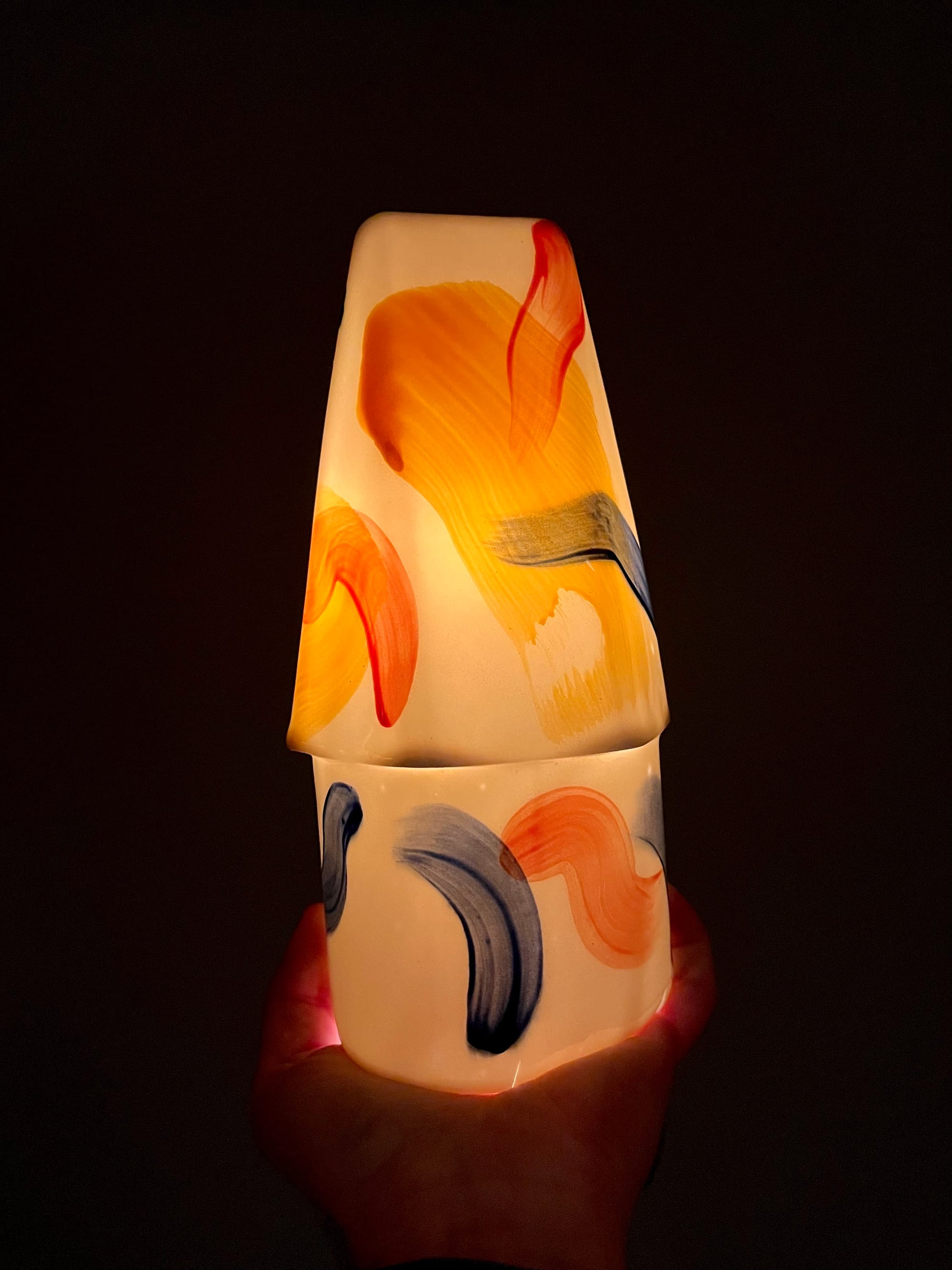
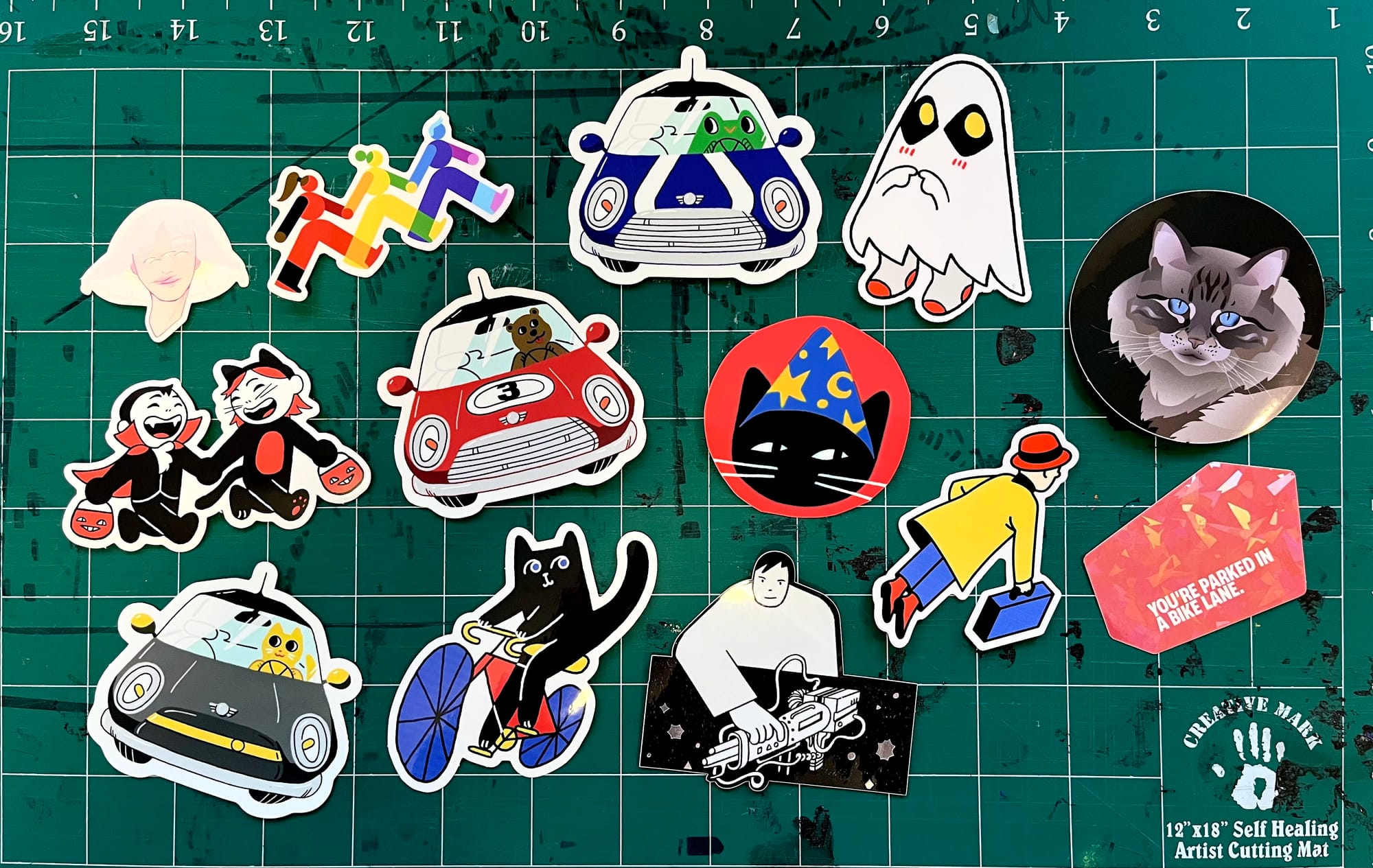
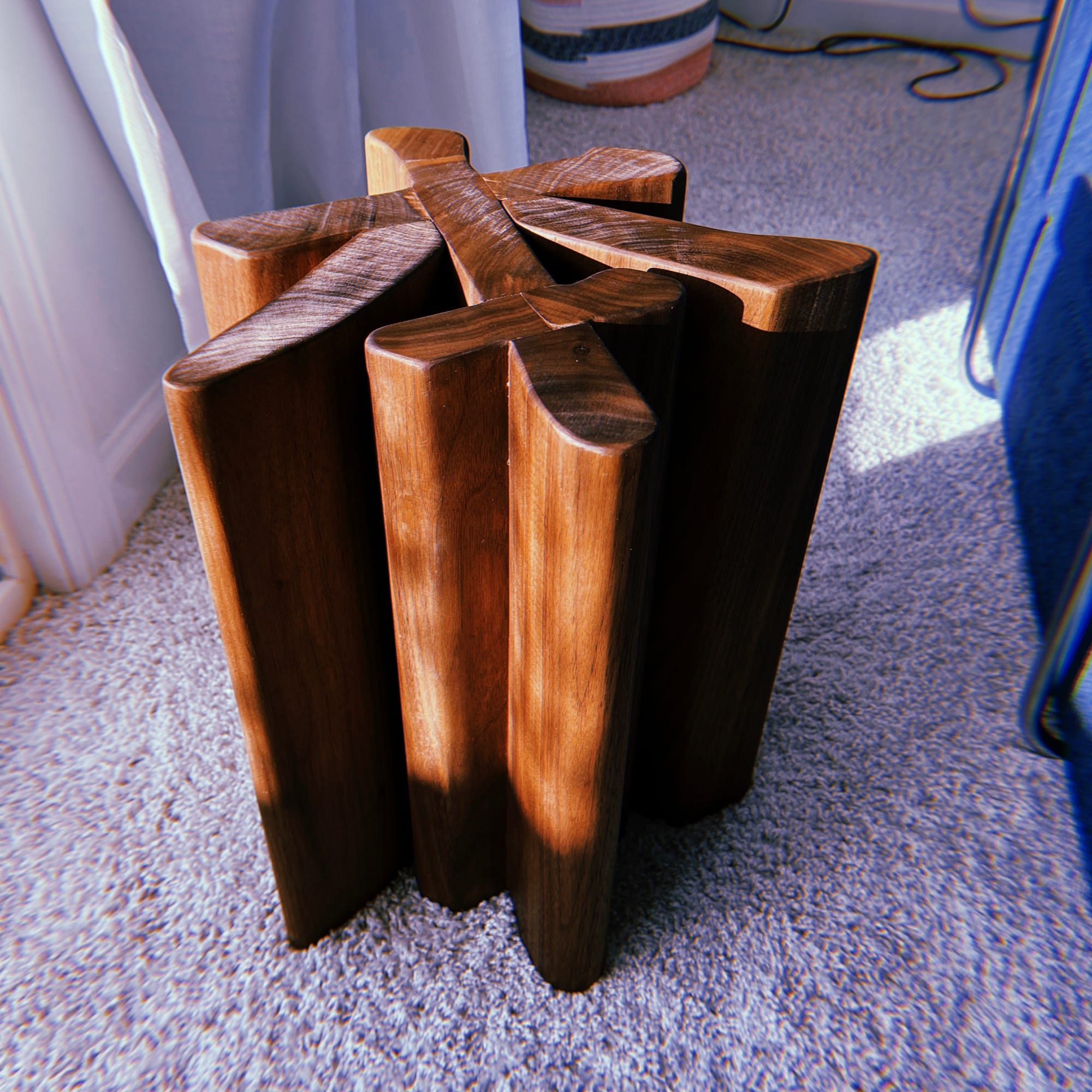
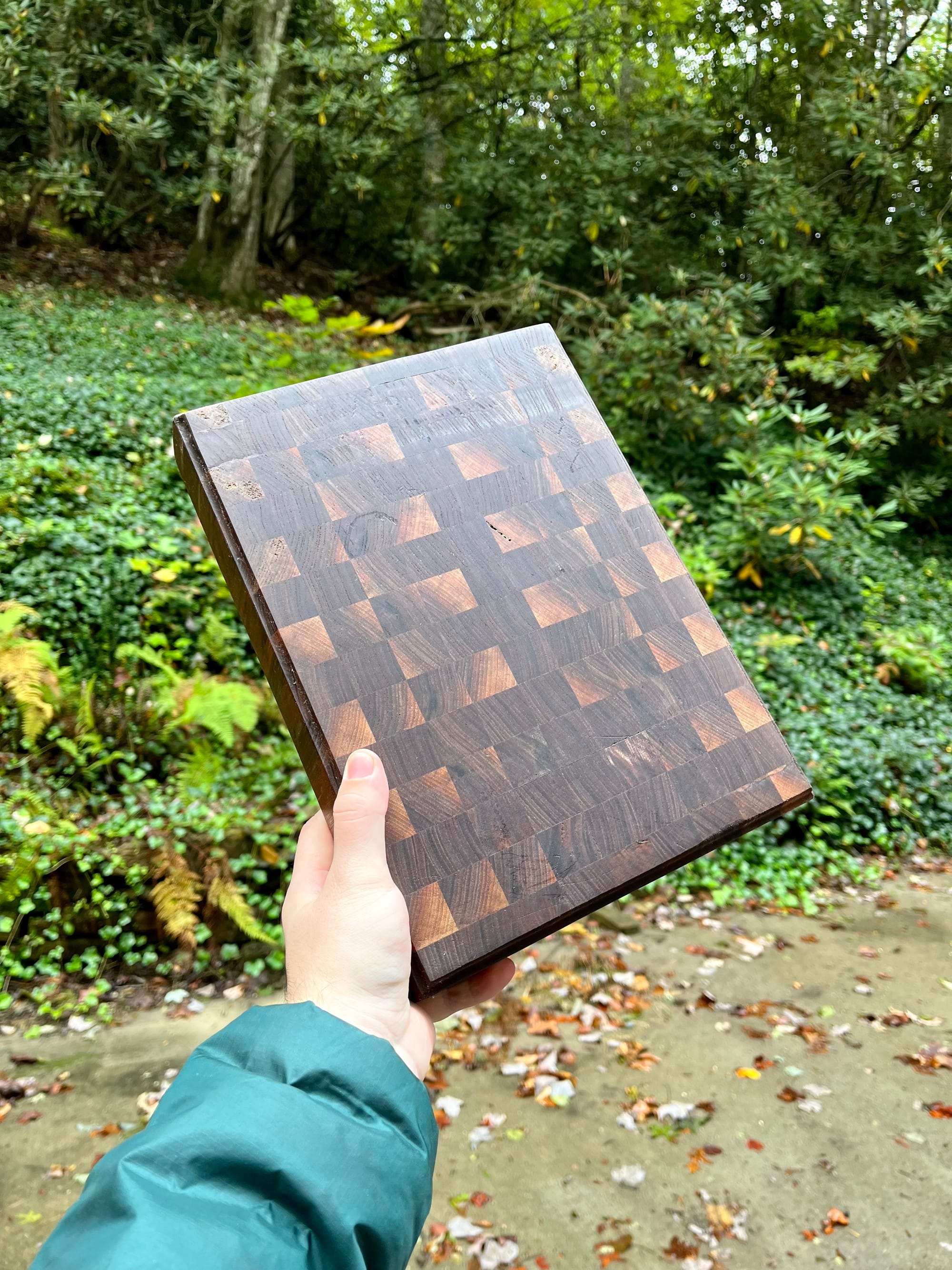
CZ: Obviously, The Bike Library’s about making cycling more accessible to different communities. As a trans person, can you talk about your experience finding community through biking?
JD: Honestly, I've always felt accepted in the bike community. Even before my transition, doing alleycats, I was welcomed. And afterward, no one even batted an eye. I feel totally included.
Also, biking downtown led me to places like RUMAH — Raleigh United Mutual Aid Hub — which offers tons of free events, education, and support, especially for LGBTQ folks. It's a nonprofit, volunteer-run, and they do things like trans dinners, seed libraries, and protest education. It’s been a huge community builder for me.
CZ: That’s awesome. I don’t think we’ve highlighted RUMAH yet. I’ll have to check it out.
JD: Definitely. It’s right near State of Beer on Hillsborough Street.
CZ: You spent some time in Durham too. How would you compare Durham's bike community and infrastructure to Raleigh’s?
JD: Durham felt much smaller. I lived near downtown and would bike to Ninth Street sometimes, but the infrastructure wasn’t great. I also had a car back then. Community-wise, I didn’t connect as much — probably because I was fresh out of college and working nonstop. Raleigh just feels bigger, and I enjoy that.
CZ: Makes sense. When I first moved here, I didn’t have a car either. What's your advice for someone considering going car-free?
JD: First, think about grocery stores — how close they are, or how willing you are to make more frequent trips. You can’t really do Costco hauls by bike. I mapped out where I go most often and made peace with taking occasional Ubers or renting a truck if needed — way cheaper than car ownership.
